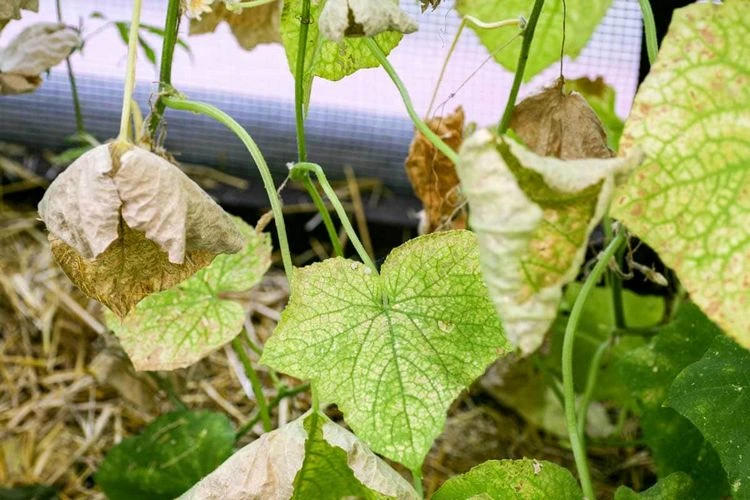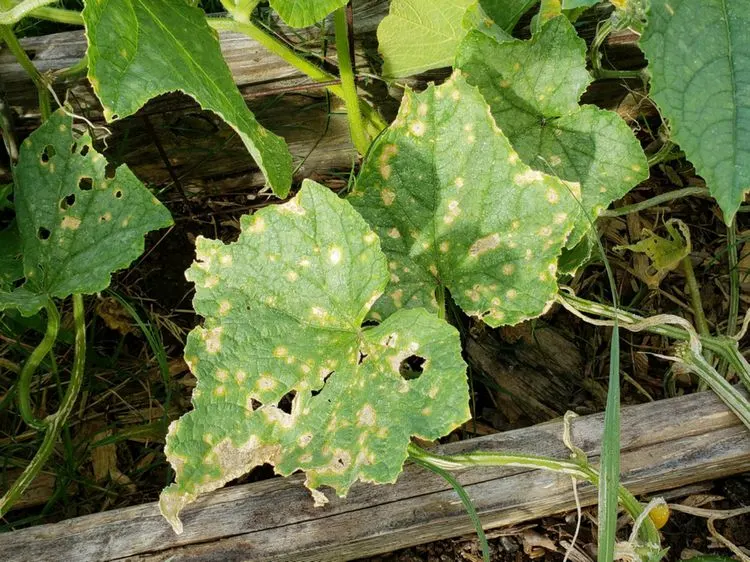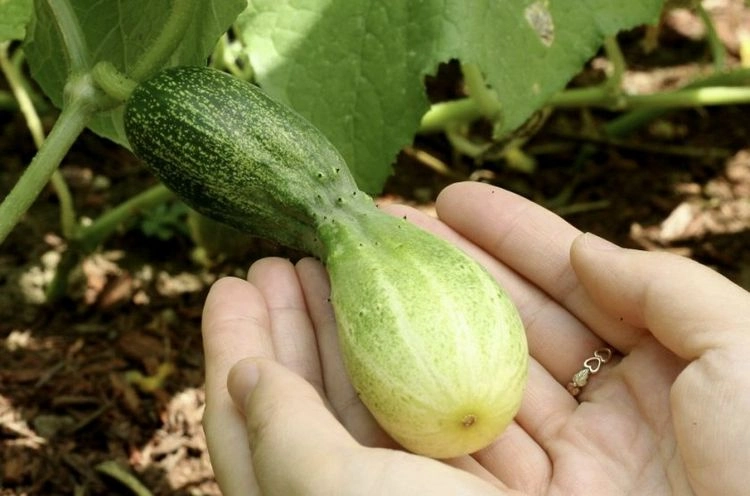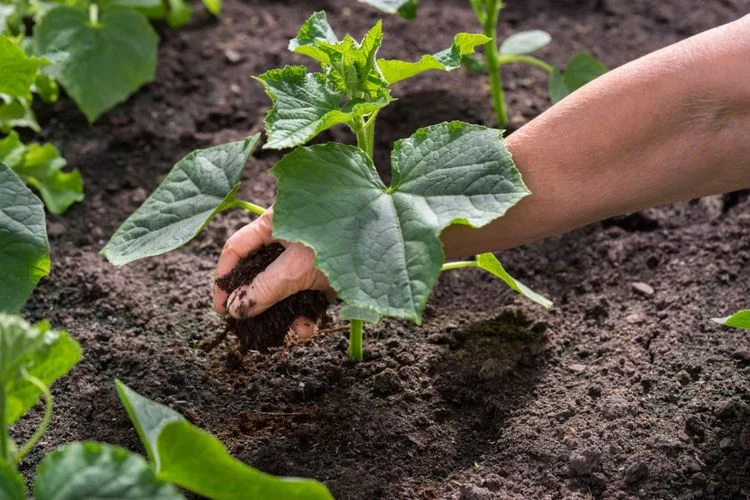A full-fledged, home-grown vegetable patch is unthinkable without these crunchy, fresh vegetables. Growing cucumbers requires little experience and can be successful in many climatic conditions. You have a wide range of choices when it comes to choosing between the different types of cucumbers, which only adds to the appeal of these foods. Cucumber slices, especially fresh and juicy ones, are a wonderful addition to summer smoothies and cool salads. If you want to harvest delicious cucumbers, you should take care of healthy plants – you will learn how to prevent cucumber diseases in this article!
Prevent cucumber diseases – tips
When cultivating this delicious vegetable, even those with keen green fingers face a number of challenges, such as diseases and pests. These problems may seem insurmountable, but the good news is that most of them are easy to solve.
In most cases, prevention of diseases of cucumbers requires being aware of everything that is going on around the plant and in the garden. Bacterial infections are caused when organisms enter the plant through damaged leaves, vines, or fruits. These infections can be avoided by handling the cucumber canes carefully and maintaining a pest-free environment. Fungal infections occur when airborne spores lodge on the surface of the plant. These infections can be avoided by paying attention to watering the plant, protecting it from pests and using various means.
Water cucumbers properly

A fungal disease that can affect cucumbers can be avoided by being careful about how you water your cucumber plants. When watering, avoid over-wetting the foliage and instead use methods that allow you to water specific areas of the plant, such as watering cones, soakaways, or thin irrigation tubes.
Cucumber plants are very thirsty, and if they aren’t watered enough, they’ll show it. Your plants may be suffering from a lack of water, causing them to wilt or grow more slowly than you would like. Like all other plants, cucumbers grown in soil thrive best when given a thorough watering once or twice a week, rather than superficial and insufficient daily watering. Cucumbers grown in containers need copious daily watering in hot summer weather.
Mulch for even moisture content

To maintain an even moisture content of the soil in cucumber cultivation, a layer of chopped leaves or straw should be applied as a mulch.
Prevent bacterial disease
A bacterial disease that affects cucumbers can enter the plant through the roots or be transmitted by insects. These diseases can spread through the air or the ground, and in some areas some of them can even survive through the winter, making them a permanent hazard. It is possible to set up physical barriers, such as natural sprays sprayed onto the leaves. It is important that any signs of infection are removed from the garden as soon as possible, whether on the cucumbers themselves or on nearby plants. This is one of the most effective strategies for preventing bacterial diseases that afflict cucumbers.
Prevent cucumber diseases – attract pollinators

Unfortunately, lack of pollination is one of the most common problems that can occur with cucumber plants these days. Inadequate pollination is likely the culprit if your cucumbers aren’t fully formed or just have a tiny stub at the end. In order for the vegetable to develop its full potential, each flower must be visited several times by a pollinator. The greater the number of pollinators in the area, the better.
That’s why you should refrain from using pesticides in the vegetable garden, as even certain organic pesticides can have negative effects on bees. Planting your edible plants with a variety of flowering herbs and plants like sunflowers, oregano, basil, zinnias, and dill will attract a greater number of pollinating insects to your garden. These insects are essential for the reproduction of many plant species.
fertilizers for your plants

Cucumbers need a lot of nutrients to thrive. If your plants’ leaves, especially older ones, are yellow or pale green, they may need extra nutrients. Adding a few inches of compost to your garden in spring should be enough to provide cucumber plants with all the nutrients they need. However, if you find them turning yellow over the summer, consider fertilizing the plants once a month with an organic liquid fertilizer. You can also incorporate a granular organic fertilizer into the planting beds before sowing the seeds, but this step should only be done if the results of a soil test indicate it is absolutely necessary. An excess of nitrogen results in long, green stalks that bear few flowers and no fruit.
Cucumbers planted in containers need to be fertilized regularly with an organic liquid fertilizer. When you plant the cucumbers, you should do so in the best quality potting soil possible.
Tip against cucumber diseases
Plants should be grown in a different location each year so that soil borne diseases and pests such as certain beetles and nematodes do not have an opportunity to infest the same plant variety again the following year. This can be achieved by transplanting the cultures.